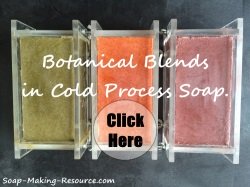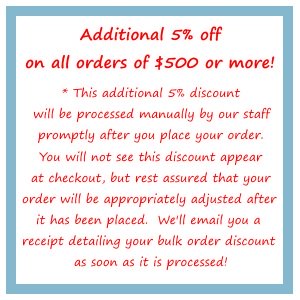Soap Making Ingredients
There are many different soap making ingredients that can be used to create soap at home. Whether it's a base, fat, oil, nutrient, natural preservative essential oil or colorant each substance has specific benefits for soap making, and will add unique characteristics to your finished product.
Before you use any ingredient for all natural soap it's essential that you know exactly what it is and what it will do to your finished product. In fact, that's the purpose of this page!
Are you looking to learn only about one specific ingredient? That's not a problem either! Just scroll down to the list of ingredients and click on the one you want to learn more about. If you don't see what you're looking for, contact me and I will be more then happy to write a page telling you everything I know about that particular ingredient.
Base for Soap Making - Lye and Potash
Keep in mind that the right ingredients for soap must be added for saponification to occur. In this chemical reaction, an acid reacts with a base to form a salt. The salt is actually your soap!
What ingredient for all natural soap do I use as a base? Personally, I use a substance called lye for soap making (also known as sodium hydroxide). Although most soap makers swear by this particular base, you can also use potash (potassium hydroxide).
Lye tends to produce a better and harder bar of soap whereas potash produces a not so nice softer bar of soap. To be honest with you, I would only consider using potash for a base when making liquid soaps.
Acid for Soap Making - Oils and Fats
Choosing your base doesn't exactly allow you to explore your creativity. One of the fun parts about soap making, however, is that you can create many different types of soap by varying the acid that reacts with the base. This variant in your soap recipe causes your creation to take on its own unique form.
|
Sign Up Today!
*Your information is SAFE with us! |
Here's a list of the acids that you can use to make soap. Click on each type highlighted in blue to learn more about its characteristics when used in soap making.
- avocado oil
- coconut oil
- castor oil
- cottonseed oil
- olive oil
- palm oil
- peanut oil
- soybean oil (vegetable shortening)
- Sweet almond oil
- Jojoba oil
- Kukui nut oil
- Shea Butter
- Tallow (beef)
- Lard
Nutrients - Extra Natural Skin Care Ingredients
The two soap making ingredients that actually take part in the reaction (the acid and base) are theoretically the only substances needed to make soap. That being said, do you really want to be boring? Of course not!
Most soap makers ad beneficial natural skin care ingredients to their soap that, unlike the acid and base, do not change during the soap making reaction.
Here's a list of some nutrients I have used in the past, and will use again and again to give my soap that extra flair:
- Aloe Vera
- Balsam copaiba
- Honey
- Oatmeal - this is a great ingredient for all natural soap
- Alfalfa meal
- Seaweed
Natural Preservatives
One dilemma with using all natural soap making ingredients is that they tend to decay quicker. You can easily remedy this problem by adding preservatives to your soap.
I strongly recommend that you only use natural preservatives and stay away from anything synthetic. After all, if you were to add unnatural preservatives, why not just use other synthetic soap making ingredients that would eliminate the need for preservatives in the first place. Hmm, good point, right?
Please note that you don't always need to use a preservative in your soap. It largely depends on which oils are used and how long you are planning to store the final product.
Here's a list of the best natural preservatives that I use in my soaps when the situation calls for them:
- Grapefruit seed extract
- Carrot root oil
- Tocopherols
There are two more soap making ingredients that many soap makers incorporate into their finished product: Essential oils/fragrances and colorants. Because of the vast amount of information needed to be covered about these ingredients, completely separate sections of this website have been dedicated to them.
Click here to learn about soap dye.
As you continue to learn how to make soap at home, I hope that you can use this webpage, and hopefully this entire website as your personal resource when constructing your soap creations.
Please feel free to contact me if you have any questions. I'm trying to make this site as interactive as possible. I'm just on the other side of the computer screen waiting to hear from you!
Click here to learn how to make soap using the cold process soap making method. Return from soap making ingredients to the soap making resource home page











